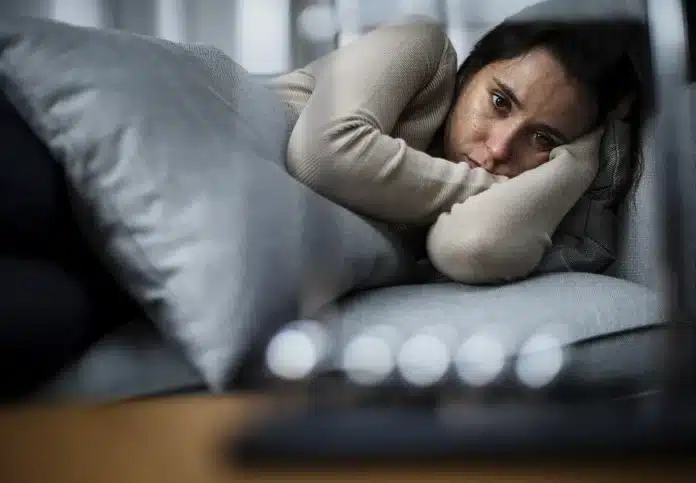Los Angeles, Ca.- Isolation, lack of understanding, despair and depression are the feelings that accompany many people with problems controlling their bladder.
Many also lack adequate information about this health condition.
Overactive bladder is when the bladder, which is a muscle, contracts even though it is not totally full and causes a person to urinate more frequently and in severe cases causes incontinence, according to Jennifer Lee, MD, urogynecologist at Kaiser Permanente, and Carol Bennett, professor at the David Geffen School of Medicine at UCLA and Board Member of the American Foundation for Urological Diseases.
The syndrome, known as Overactive Bladder, affects an estimated 33 million Americans, 40 percent of whom are women and 30 percent are men, reports the Urology Care Foundation. Many of the sufferers do not seek medical help because they are embarrassed or do not know that there are treatments that can help them.
Carol Bennet urologist and professor at the David Geffen School of Medicine at UCLA said that the population most affected by this condition in the United States are women, especially white, Hispanic, and African-american.
The bladder may be holding 100 milliliters of urine it is when starts signaling your brain to urinate — that’s an overactive bladder, she added that the usually cause of OAB (by its english initials) could be neurogenic such as a stroke, spinal cord injury or bladder nerve injury. The bladder should be holding from 300 to 500 milliliters of urine but instead it.
“For patients with an overactive bladder, you have to give medicine that helps decrease contractions so that everything tends to be close to normal and you also tell the patient not to drink a lot of fluids because if they do they will have to go to the bathroom a lot,” she added. “And so we recommend that they try to have a schedule to go to the bathroom, that they go every 2 or 3 hours to empty the bladder until it is really full or the medications have to be used in conjunction with lifestyle changes that must be like a routine”.
The specialists, as well as the Urology Care Foundation, said this health condition can affect the personal, work, family and social life of people. People are reluctant to talk about their situation even with their doctor because they feel embarrassed and sad.
Maria, a 60-year-old woman in Los Angeles, who shared her experience on the condition we do not publish her full name for privacy reasons, said she is often embarrassed by her condition.
Because of her condition, Maria said, she has suffered embarrassing situations which made her feel physically ill. Still, she said she has not told her doctor because she is embarrassed.
“The truth is embarrassing, but I have like a little bucket in the trunk of the car and I put it behind the seat and since the windows are smoked, then I urinate there because if I don’t do it soon it hurts even my kidneys and back”, said María. “So when I walk in the street or I’m driving on the highway and I want to go to the bathroom and I can’t find one, well, I do it like that and that makes me feel desperate, sad and even angry even though I didn’t tell the doctor that”.
According to the Urology Care Foundation, an overactive bladder can prevent patients from working, sleeping, socializing, and exercising normally. Without treatment, the symptoms of overactive bladder can complicate daily life because of the need to go to the bathroom often. Many sufferers may choose to stay home instead of socializing which sometimes leads to loneliness and isolation.
“There are days I don’t want to talk to anyone, I don’t want to go anywhere even though they invite me out, I just want to be in my room, alone, because I’m comfortable there”, she commented. “But later I compose myself and go out and start talking to my children again and try to lead a normal life, because it is something very embarrassing and worrying because I have already leaked urine several times, that’s why I went to the specialist to see what is happening with me”.
María expressed that this health problem has affected her work, family and friendships. She has four grown children with families of their own.
“My sons and daughters don’t want to be struggling with: Oh! I want to urinate and sometimes I only do 2 or 3 drops and that’s it, it’s just a sensation and sometimes that’s what also bothers me because I’m just going to the bathroom and I do very little, then when I’m with my daughters they tell me, ‘oh mom again!”, she said. At night, Maria sleeps with a bucket near her bed just in case someone else is in the bathroom when she has to go.
“I do not feel supported by my family, nor by my friends, they do not care, they do not understand, people have to live it to really understand”, she stressed.
During a shopping trip with a friend Maria couldn’t get to a toilet in time and she urinated in her clothes. Her friend bought her pants and underwear but now teases her about it and told other friends.
“Now my friend often tells me: Oh! Don’t go to pee, don’t go to pee and so on, then she talked about it with another friend and another and now they make comments to me about it,” she said. “I feel very bad, it makes me feel very desperate, sorry and sad because it’s something that I can’t control it”.
She said she’s had problems for a year but it has gotten worse in the last four months. She finally reported it to her primary care physician, who sent her to a specialist.
“My primary doctor at Kaiser told me that I had bladder problems, that I had urinary incontinence”.
SPECIALISTS RECOMMEND SEEKING HELP AND FIGHTING TO IMPROVE THEIR QUALITY OF LIFE.
Experts from Kaiser Permanente and UCLA said many people who suffer from Overactive Bladder do not seek care because they feel embarrassed or don’t know about the condition. They urge people with urinary problems to seek medical help because there are treatments that can help them improve their conditions.
They also said so far the exact cause of Overactive Bladder unknown, but that there are different medical treatments that can help patient improve their condition because there is still no cure.
“That (overactive bladder) can be related to different conditions so it’s important to know if the person doesn’t have a urinary infection or diabetes or some neurological condition like a stroke or Parkinson’s disease that can cause those symptoms – the urgency and frequency to urinate-”, said Dr. Lee. “But there are also patients who have those symptoms and don’t have any of those conditions”.
“To treat this condition, we start with conservative treatments of the bladder. I ask patients to avoid caffeine, not to drink a lot of fluids, just like 64 ounces of water and not much more because if they do they have to urinate a lot”, she explained. “I recommend women use a (hormonal) cream and do pelvic exercises because that can help them to stop urine better until they get to the bathroom.
Dr. Lee acknowledged that it is a big problem that people aren’t willing to tell their physician what is happening to them because they feel embarrassed and because there are commercials on television that show them that there are products or things that are going to help them to have fewer urine spills.
“But there are many types of medical treatments that can help them and that people do not know about or also there are many people who think that it is normal to go to the bathroom so often or to leak urine, the reality is that it is common but it’s not normal,” she stressed. “She also said the condition can often affect patient’s sex lives.
“I have many people who are ashamed or afraid that urine will come out when they have sexual intercourse,” she said. “We know that it is a condition that can cause depression, social isolation so when it is treated and it starts to improve it also improves people’s lives and minds”.
This journalistic work was carried out with the support of the USC Annenberg School for Communication and Journalism.



Urology specialist Carol Bennet. Photo/courtesy UCLA, Kaiser Permanente Urogynecologist Jannifer Lee and Maria (Left to right).



